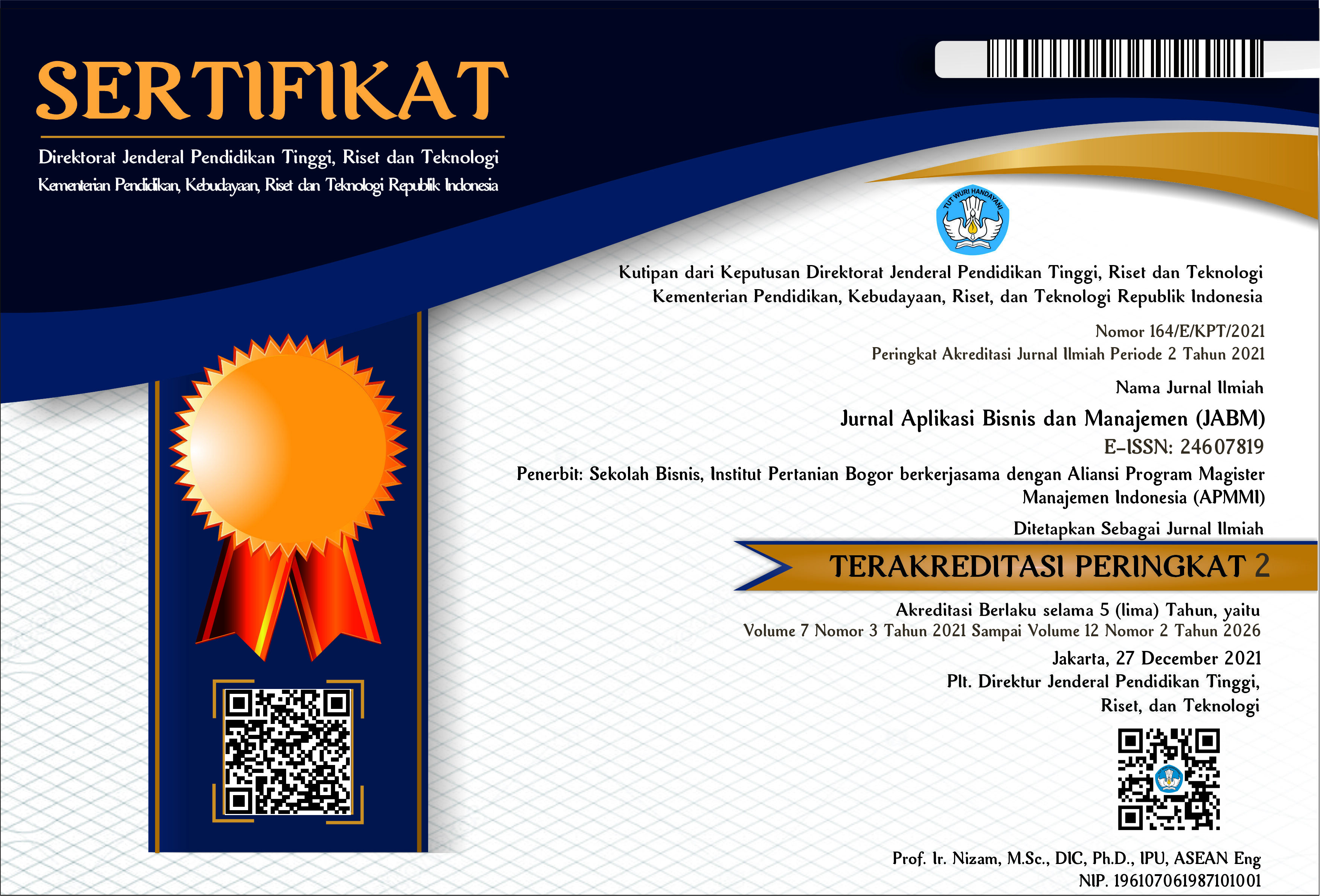Factors Influencing QRIS Adoption in Warkops
DOI:
https://doi.org/10.17358/jabm.11.1.214Abstract
Background: The rapid advancement of technology has significantly transformed how individuals interact, work, shop, and communicate. In Indonesia, digital payment systems have gained prominence, and the Quick Response Indonesian Standard (QRIS) has emerged as an important method for transactions in traditional coffee shops or Warkops (short for Warung Kopi).
Purpose: This study explores the factors that influence the adoption of QRIS as a digital payment method in, focusing on subjective norms, perceived usefulness, perceived ease of use, attitude, perceived security, risk, anxiety, and comfort.
Design/methodology/approach: We utilized a quantitative approach. Using purposive sampling in Warkops, we collected data from 230 respondents through a structured survey. The data was analyzed using Structural Equation Modeling-Partial Least Square (SEM-PLS).
Findings/Results: The analysis reveals that attitude, perceived ease of use, and perceived usefulness significantly impact the intention to use QRIS. In contrast, perceived security, risk, anxiety, and comfort do not significantly affect the intention to adopt QRIS.
Conclusion: Warkop, aiming to enhance customer convenience and transaction efficiency, should consider adopting QRIS, as psychological and social factors play a crucial role in its adoption.
Originality/value: This research contributes to the academic literature by emphasizing the role of subjective and psychological factors in digital payment adoption. It provides a foundation for future studies to investigate QRIS adoption in different contexts.
Keywords: technology adoption, QRIS, Warkop, subjective norms, TPB






